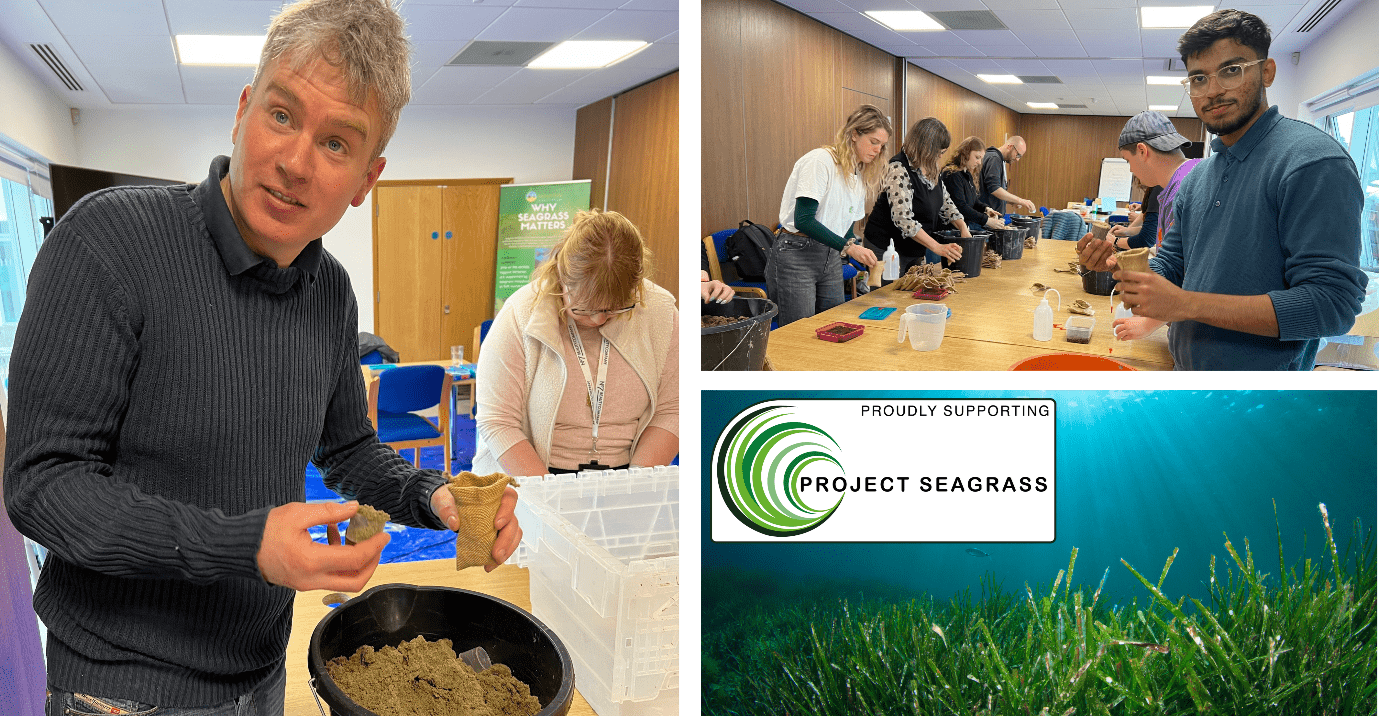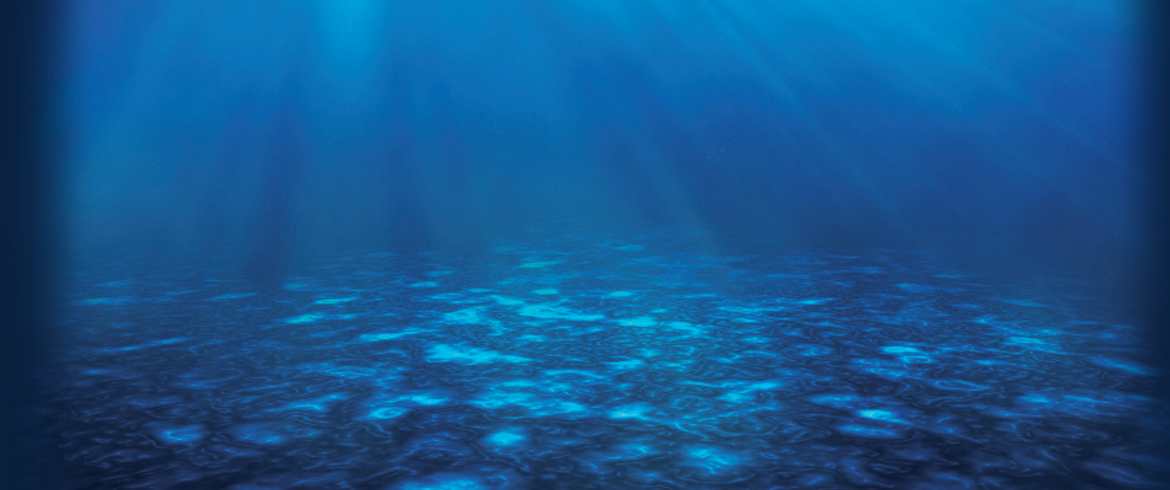
Taking a well-earned break from their computers, two of the OceanWise team spent a productive yet drizzly Monday on the Isle of Wight engaged with a different kind of fieldwork to normal. Proudly supporting Project Seagrass already through a number of charitable donations, we were very excited to finally get the chance to contribute to their work in person. Recognising the importance of seagrass for the present and future of our coastal ecosystems, Project Seagrass combines education, research, and hands-on action to bring attention to a crucial but under-shared conservation mission.
Andrew and Bhavith, OceanWise’s representatives for the day, joined a team of volunteers who were all getting stuck in and contributing to Project Seagrass’ research project and learning more about seagrass meadows and replanting. For this project, the team filled small hessian bags with a careful mixture of sand, mud, and seeds that would provide the correct nutrients for the growing plants, protect them from hungry crabs, and prevent them from being dislodged by the currents. By the end of the day, the volunteers had filled almost 600 bags, each of which contained 40 seeds, and had also explored the eco-friendly headquarters of Liz Earle where they were hosted. By now their hard work will be planted in Priory Bay, Isle of Wight and contributing to the next stage of seagrass conservation.
“seagrass provides important protection from coastal erosion and is an important natural carbon sink, pulling more harmful gases from the atmosphere than tropical rainforests”.
Seagrass is important – rebuilding this delicate ecosystem is a complex and lengthy process requiring years of consistent effort and favourable climatic conditions. The coastal ecosystems, that we and most others in the maritime industry interact with regularly, are hugely reliant on seagrass. Providing food and shelter to countless animal species, this plant is key to global biodiversity and therefore also to food security for many populations around the world. In addition, seagrass provides important protection from coastal erosion and is an important natural carbon sink, pulling more harmful gases from the atmosphere than tropical rainforests. Britain’s coastlines are its most important source of carbon sequestering, making seagrass an invaluable ingredient to our approach to climate change.
Seagrass is facing many threats. Physical disturbances from ship propellors, coastal development and mooring chains can damage roots and leaves, sometimes so severely that the plants never grow back. Furthermore, the impact of pollution on water quality and nutrients is making it much harder for seagrass to survive. We are proud to have been involved with this essential research and will be posting updates on this important habitat indicator. We look forward to getting involved again soon – watch this space for future developments of this project and how OceanWise is continuing to work towards our environmental and sustainability goals.
Back to News


